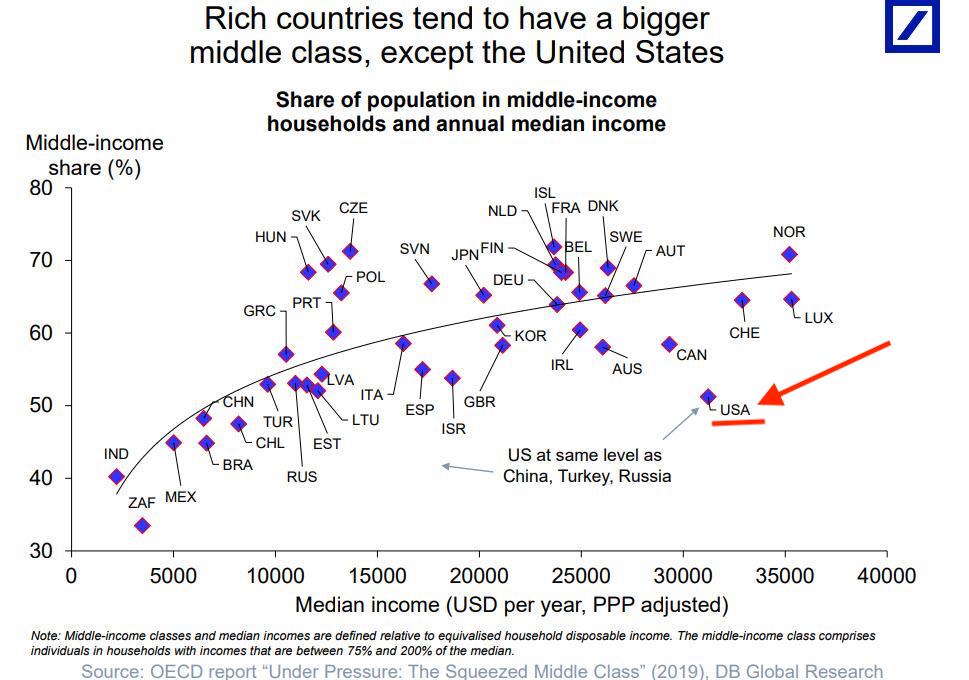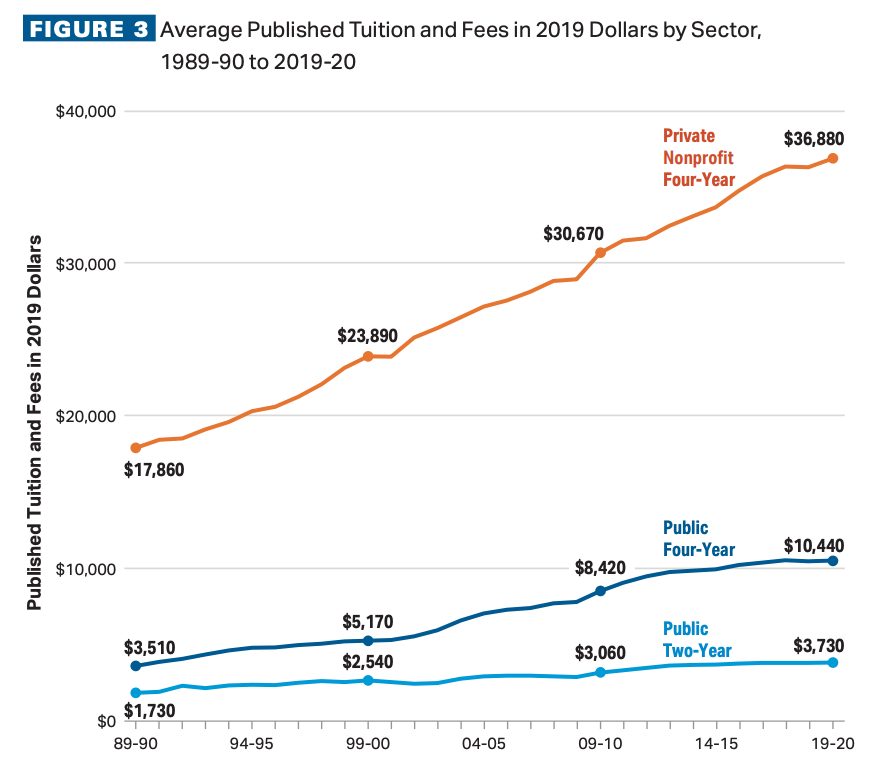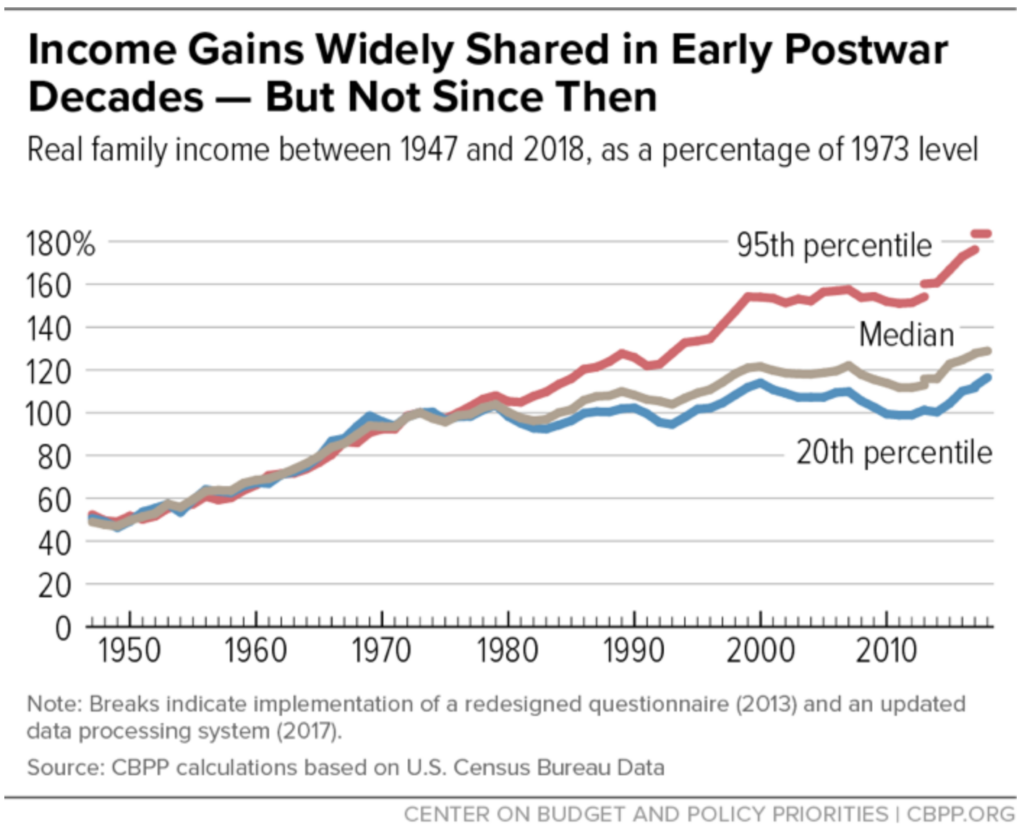The American middle class is shrinking, as educational achievement plateaus at the average level of attainment and more middle class families compensate the lagging educational achievement with discretionary spending on extracurricular activities and supplemental academic support services.

By the late 1970’s, the collapse of American manufacturing sector made way for the meteoric rise of the knowledge-based service and technology sectors, the assault on the middle class gaining momentum. No longer was a high school diploma or a two year trade school credential enough for entry to or maintenance of the American middle class. From economic crisis, the belief that a college degree was a talisman against the economic demons laying waste to a middling view of what it was to prosper, had penetrated the American psyche deeply, increasing the demand for college education which has yet to find equilibrium.
Though as the saying goes, “Rome wasn’t built in a day”. To expand the supply of college to meet growing demand, required investment, and investment required a return for investors which in turn required a growth in revenues that yielded positive cash flow, apart from endowments, that left only one candidate—tuition—which increased annually outpacing inflation and outpace it did, by some accounts at an average of 8% each year.

For those seeking a college education during the time of rising tuition, they confronted a fiscal conundrum. Although inflation generally, declined in the 1980’s, and the economy steadily grew, incomes for those in the median and 20th percentile saw their incomes stagnate.

By 2000, the multi-generataional belief that a middle class life was achievable and maintainable was under assault. Middle class families, and those aspiring to join the middle class ranks, were caught between a rock and a hard place. Forgo college, seek a less trodden path and forge their own economic prosperity? Or would middle class families continue pursuing college degrees, convinced of the economic promise seemingly inherent in being college-certified, yet how would they pay for it?
Please choose one of the following:
A) Deplete savings for a rainy day, sure to come
B) Borrow from future income, believing the financial outlook is brighter than now
C) A & B
D) None of the above
The Answer Key will be available in the next post.
For more information about how to navigate the complex college admissions process to prepare any student for the challenging labor market, check out Creative Marbles Consultancy



